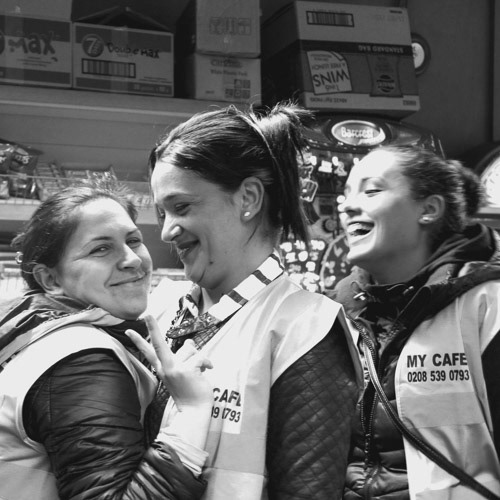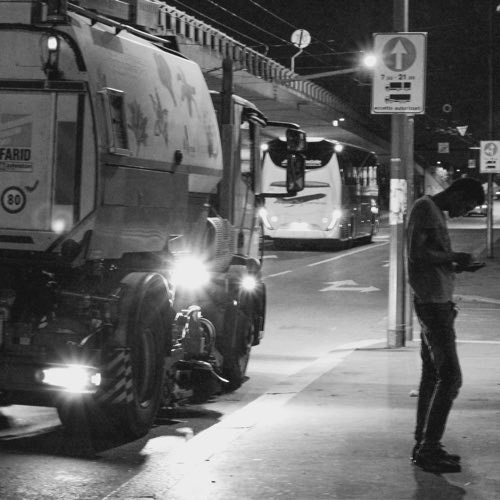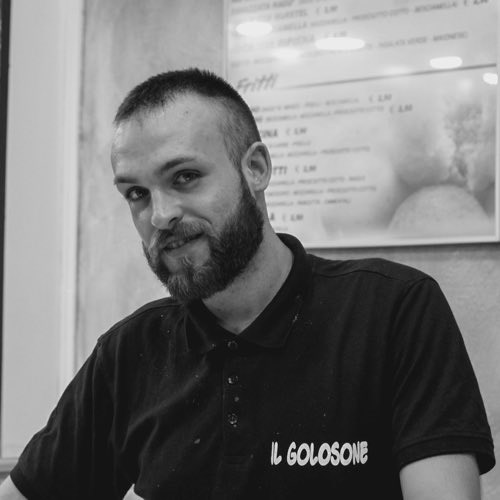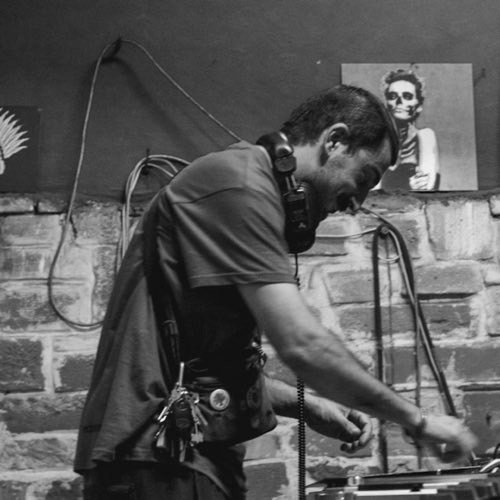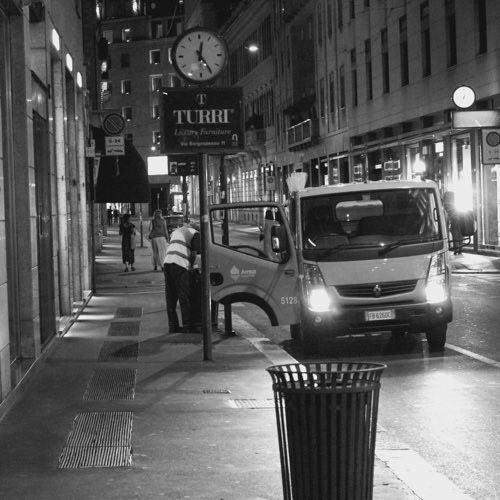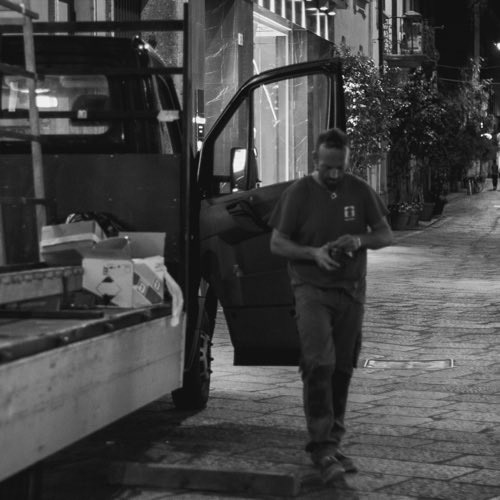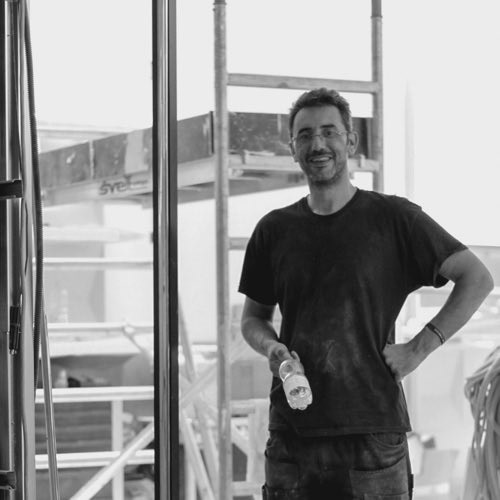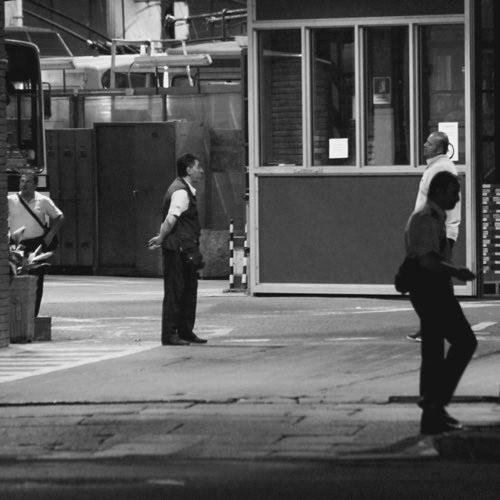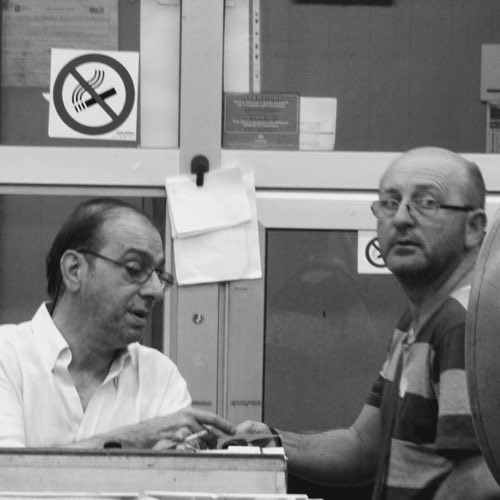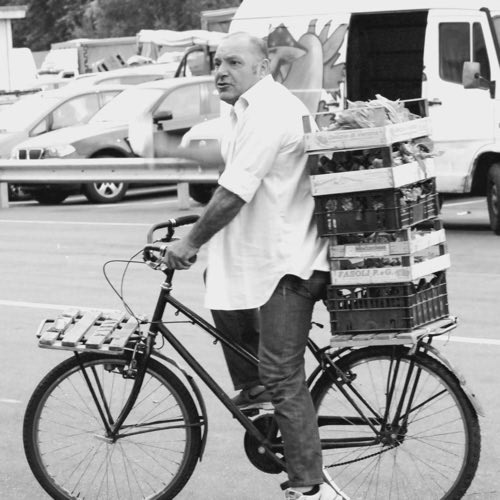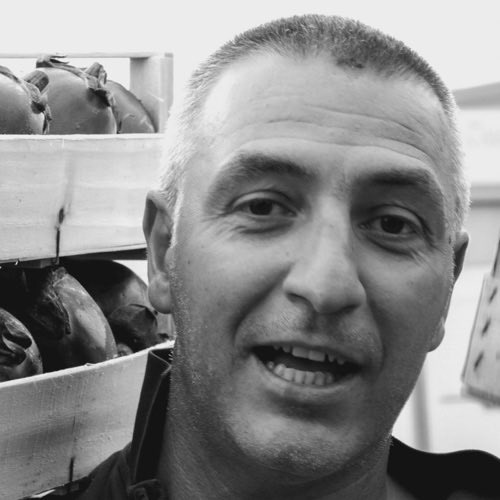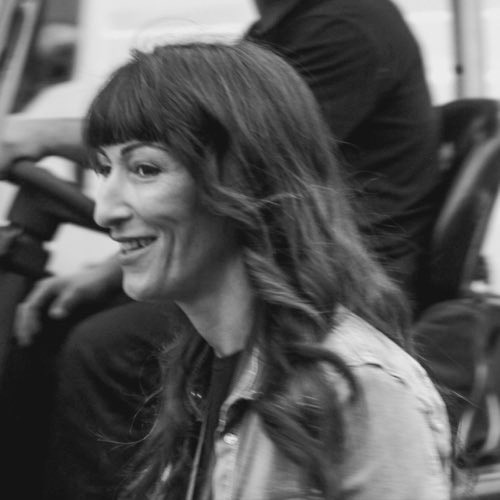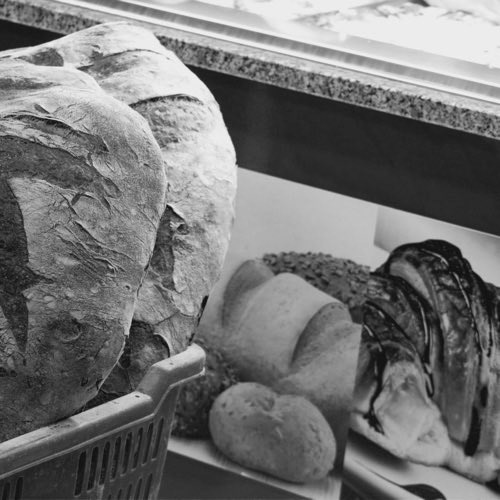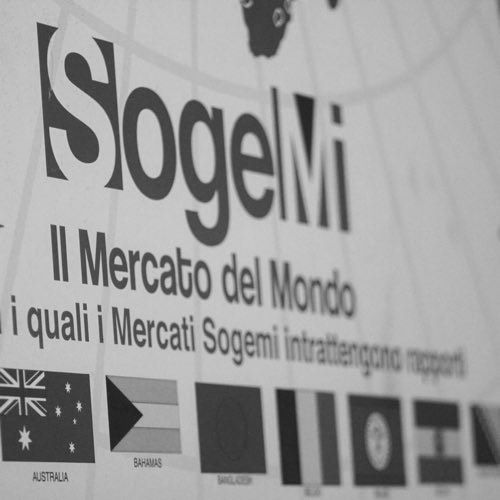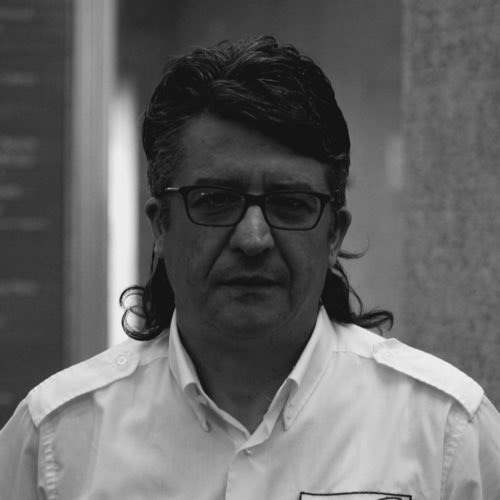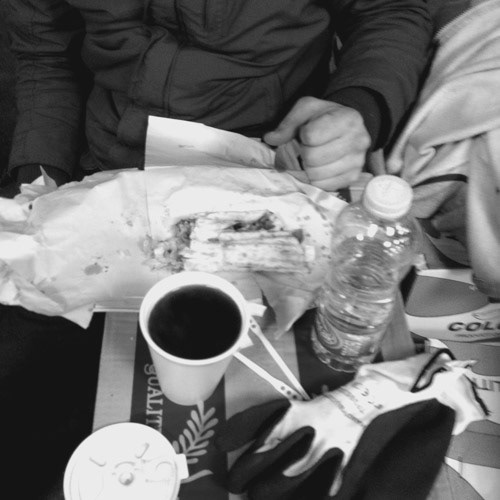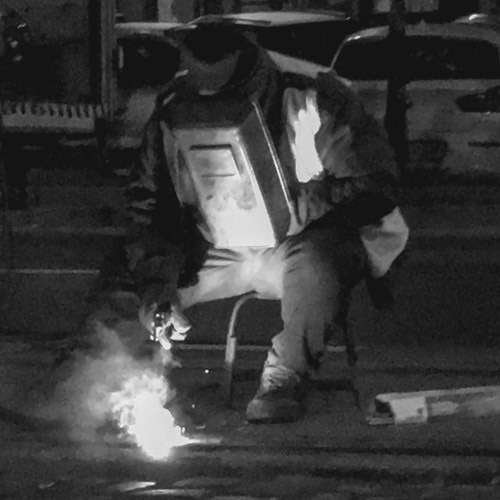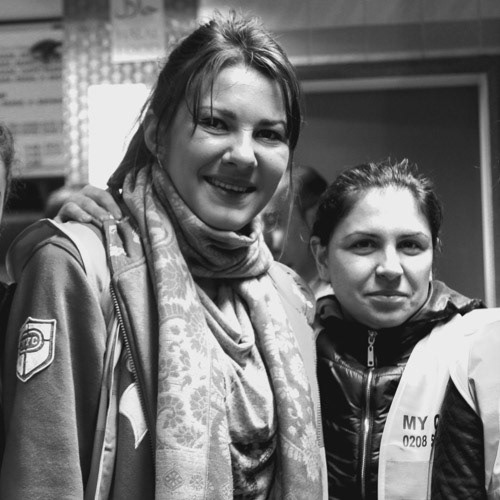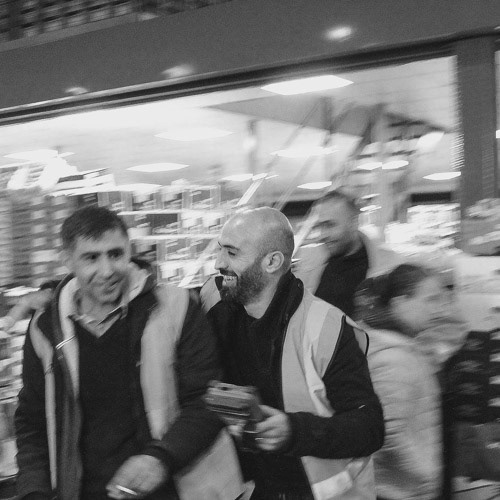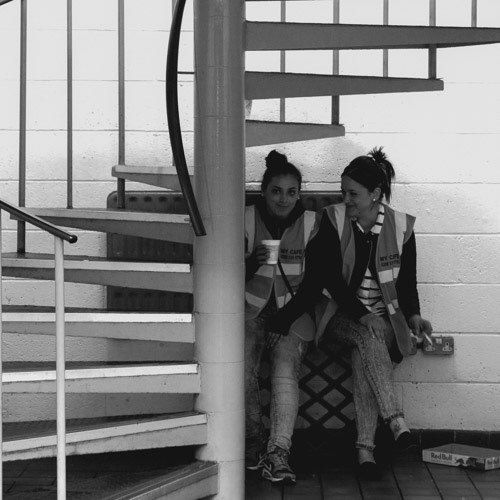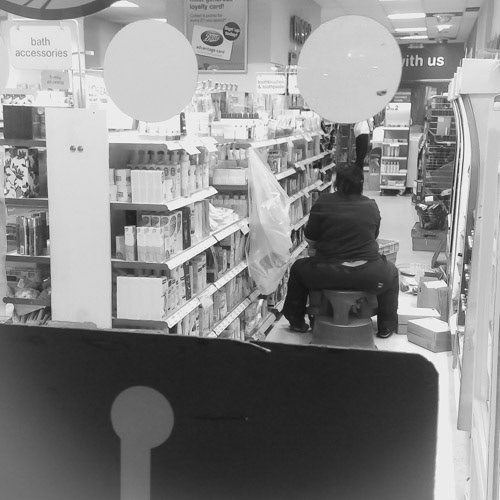*Signature list has been opened earlier for those who read and commented on the drafts prior to its release date on 08.02.2022.
🎖 MEET OUR NIGHTWORKER CHARTER SUPPORTERS 🎖
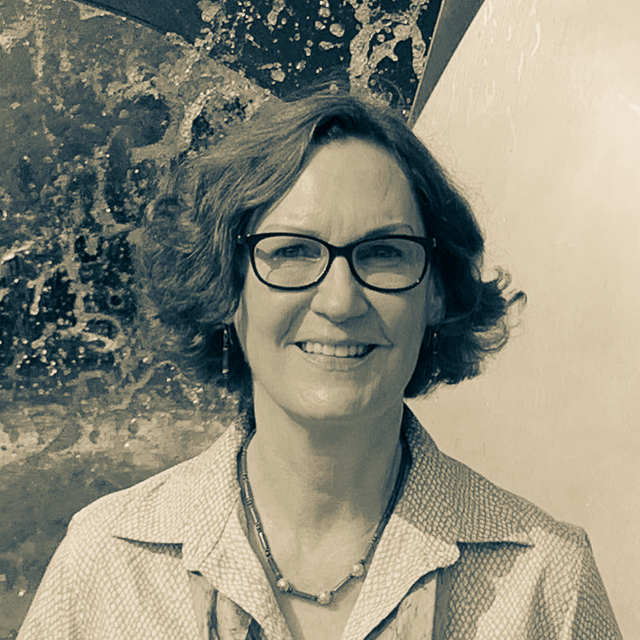
Nancy Gonlin is a night archaeologist who investigates nightworkers of the past, among other nocturnal topics. She is a Professor of Anthropology at Bellevue College, WA, USA.

Don began his involvement as a law centre caseworker in the mid-1970s and subsequently worked on policy issues for the Joint Council for the Welfare of Immigrants. He was the founding director of the Migrants Rights Network and a board member for over ten years of the Platform for International Cooperation on Undocumented Migrants. Since retiring from paid work he has continued his commitment to migrant rights as an organiser of the London Hearing of the Permanent People’s Tribunal on Violations of Migrant rights and as a member of the Reference Group of Status Now Network. He is a regular blogger on the politics of migration and the author of many published magazine articles and book chapters.
![Dr Rhetta Moran is a praxivist who is most interested in how we develop the content and media of our communications to ensure fundamental changes that realise and then maintain global equality. A mother of three who lived in a caravan until she was four, Rhetta is based in Manchester UK. She co-founded RAPAR -RAPAR - HOME - in 2001, co-edited the first book to be published about Doing research with refugees : issues and guidelines (eBook, 2006) [WorldCat.org] and, in preliminary response to the emergenvce of COVID19 initiated Status Now 4 All - 'Indefinite Leave To Remain' for people who are undocumented, destitute and those in the legal process #HealthAndSafetyForAll. Currently she is consulting on the development of a new partnership that's Growing Rights Instead of Poverty.](https://cdn.myportfolio.com/72beeead-e379-41bd-9dc5-4e91f75cc38f/5eda4fff-e835-41af-96cd-ae0da6ee1c3b_rw_600.png?h=f7c6fd4ffc9789cdd73146fc073fa4ca)
Dr Rhetta Moran is a praxivist who is most interested in how we develop the content and media of our communications to ensure fundamental changes that realise and then maintain global equality. A mother of three who lived in a caravan until she was four, Rhetta is based in Manchester UK. She co-founded RAPAR -RAPAR - HOME - in 2001, co-edited the first book to be published about Doing research with refugees : issues and guidelines (eBook, 2006) [WorldCat.org] and, in preliminary response to the emergenvce of COVID19 initiated Status Now 4 All - 'Indefinite Leave To Remain' for people who are undocumented, destitute and those in the legal process #HealthAndSafetyForAll. Currently she is consulting on the development of a new partnership that's Growing Rights Instead of Poverty.
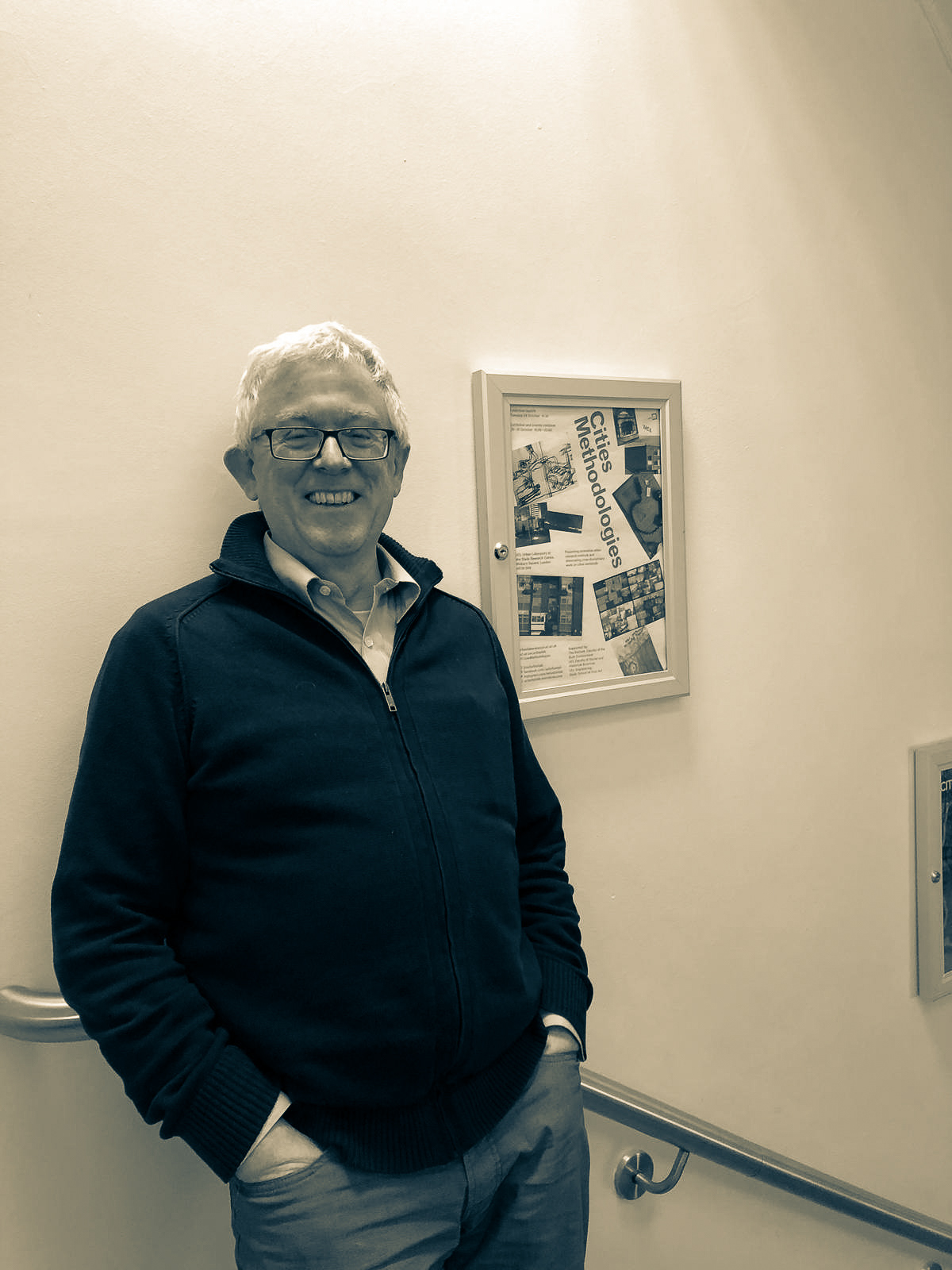
Ger Duijzings. Professor in Social Anthropology. Chair of Southeast and East European History at Universität Regensburg. Born in Berg en Terblijt (Netherlands). 1989 Master degree in Social and Cultural Anthropology at the Catholic University of Nijmegen (now Radboud University Nijmegen). 1999 Doctorate in Social Sciences (Anthropology) at the University of Amsterdam (topic of the Ph.D. dissertation: Religion and the Politics of Identity in Kosovo). 1996-2005 Lecturer in Serbian and Croatian Studies at the School of Slavonic and East European Studies, University of London (since 1999: University College London). 1997-2002 Research Assistant at the Srebrenica Research Group of the Netherlands Institute for War Documentation (NIOD) in Amsterdam. 2002-2004 Expert for the International Criminal Tribunal for the former Yugoslavia (ICTY) of the United Nations in The Hague. 2005-2014 Reader in the Anthropology of Eastern Europe at the School of Slavonic and East European Studies at the University College London. Since 2014 Professor of Social Anthropology with a focus on Southeastern and Eastern Europe at the University of Regensburg and Principal Investigator of the Graduate School for East and Southeast European Studies.

Michael Fichman is a city planner, researcher and lecturer at PennPraxis at the University of Pennsylvania’s Weitzman School of Design and the Acting Director of the University’s Masters of Urban Spatial Analytics Graduate Program. Michael is chair of Philadelphia City Council’s Arts and Culture Task Force Nightlife Committee and the creator of Philadelphia’s Nighttime Economy Office. He has collaborated on numerous projects for consultancy VibeLab including The Creative Footprint and the Global Nighttime Recovery Plan. He is an Emerging City Champions fellowship recipient for his work with 24HrPHL, a nightlife community organization. Michael is also work is based on his 20 years as a professional DJ and producer .

Michael Fichman's work is based on his 20 years as a professional DJ and producer - releasing dozens of works and touring internationally under the names Michael The Lion and DJ Apt One.
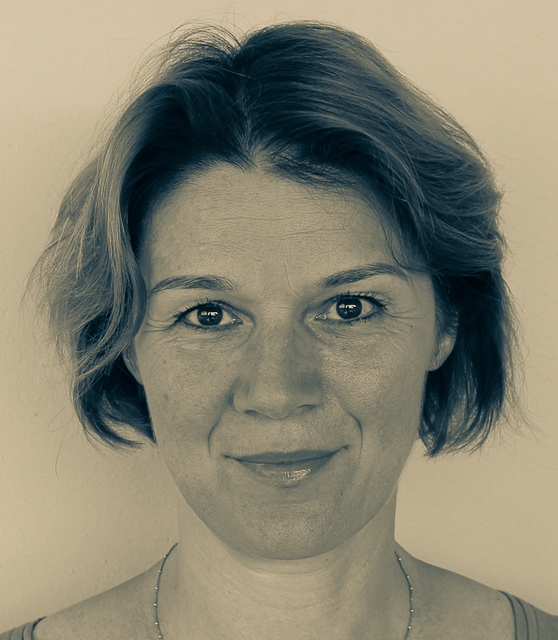
Éva Fodor is Professor of Gender Studies and is currently a member of CEU's Senior Leadership Team as Pro-Rector for Foresight and Analysis. She has a Ph.D. in Sociology from the University of California in Los Angeles and works in the field of comparative social inequalities. Specifically, she is interested in how and why gender differences in the labor market and elsewhere are shaped, reshaped, renegotiated and reproduced in different types of societies an din different social contexts. Her recent book, "The Gender Regime of Anti-Liberal Hungary" describes the introduction of what she calls a "carefare" regime in Hungary after 2010 (open access with Palgrave Pivot, 2022). Her ongoing research projects address the impact of the Covid - 19 pandemic on the division of care work, and the transformation of the labor market during and following the pandemic.

Christos Christofides is from Cyprus. From 2004 to 2019 he has been elected to the Board of Directors of the Union of Cyprus Journalists (UCJ). From 2016 to 2019 -when he retired- he served as General Secretary of UCJ. From 2013 to 2019 he was elected as reserve member of EFJ. Since June 2019 he is a member of the Gender Council of the International Federation of Journalists (IFJ). Since 2007 he is a member of the Cyprus Journalism Ethics Committee. As a peace and anti-racism activist, Christos is an active member of NGOs and citizen groups, including bi-communal ones. He is also one of four authors of the booklet “Words that matter - A Glossary for Journalism in Cyprus”, 2018, sponsored by the RoFM of OSCE. Email: chrichrini@ymail.com

Marie MARTIN, Advocacy and Policy Researcher on migration and asylum policies, engaged in support of grassroots migrants' rights and refugee rights organisations, member of the Euro-African network Migreurop.
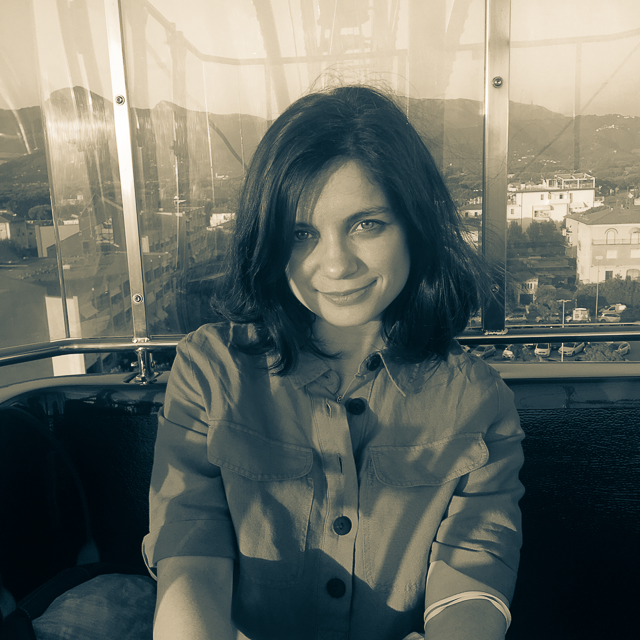
Sahizer Samuk received her PhD in Political Science at the IMT School for Advanced Studies Lucca in May 2016. From March till August of 2016, she worked for IOM Ankara on supporting the development of harmonisation policies in Turkey. She used to work as a short-term postdoc at the Geography and Spatial Planning Department at the University of Luxembourg for almost 1.5 years in the team of MOVE Project which focused on youth mobility within the EU and later on, at the University of Pisa she conducted interviews with highly skilled Italians abroad studying the phenomenon of brain drain and intra-EU mobility. Her research interests are cultural heritage, mobility/migration, integration policies (mostly in Canada, Italy, UK and Turkey), temporariness vs. permanence (temporary migration policies), and authors in exile. Currently, she works as a postdoc at IMT School for Advanced Studies.
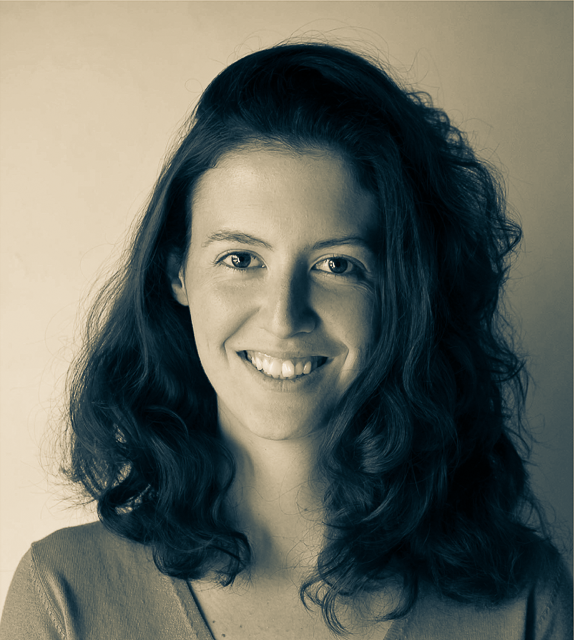
Alesandra Tatić is a visual anthropologist based between France and Spain. Her ethnographic fieldwork is global, yet mostly focused on the Balkans and the Mediterranean. Alesandra works with and for the women’s labor movement, exploring feminist resilience and migration phenomena. As a co-founder of the Wild Pear Arts collective she co-authored several short and one feature documentary films. She is currently a PhD candidate in anthropology at the Ecole des hautes études en sciences sociales (EHESS). Get in touch with Alesandra via Linkedin: https://www.linkedin.com/in/alesandratatic
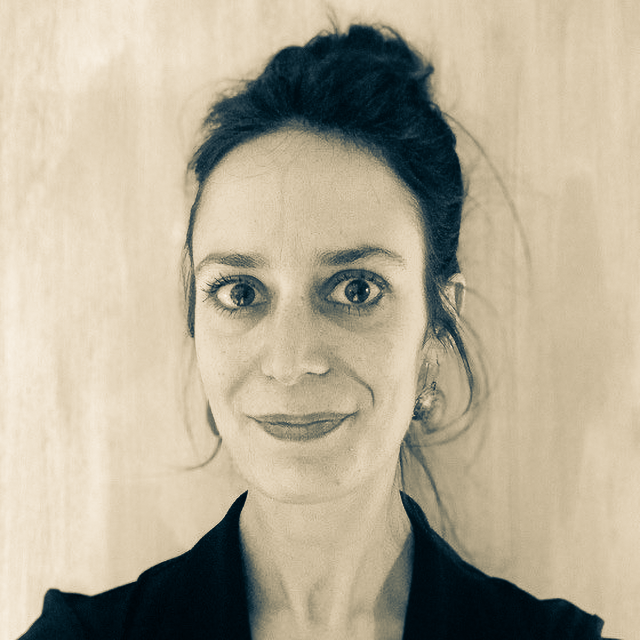
Céline Cantat is Academic Advisor at the Paris School of International Affairs, Sciences Po Paris. Her academic work has focused on migration, humanitarianism, solidarity mobilisation and the relation between macro processes, such as globalisation and state formation, and the forced movement of people within and across borders. She is also interested in higher education and in particular the politics of university access. Céline also worked as Academic Director and Lecturer for a higher education programme for refugee students and as a Marie Curie Individual Fellow, both at the Central European University in Budapest. She holds a PhD in Social Sciences from the University of East London, an MSc in Globalisation and Development from SOAS, University of London, and a BA in European Studies from King’s College London.
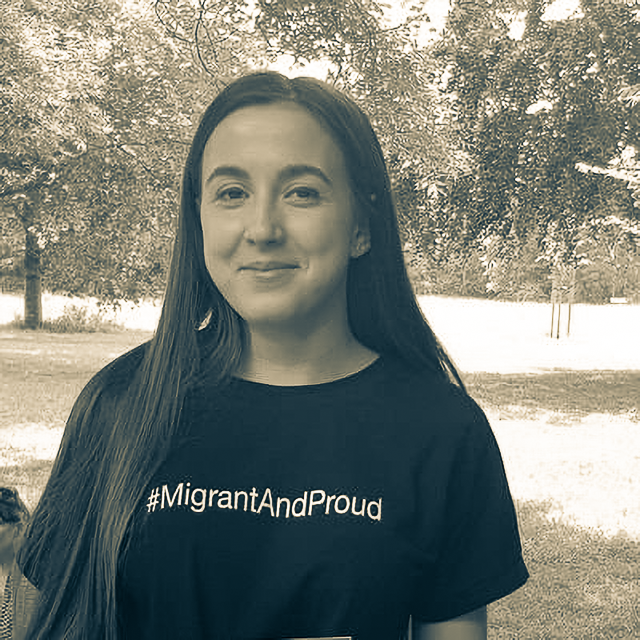
Dr Alexandra Bulat is a migration researcher and migrants' rights campaigner, co-founder of Migrants4Labour and the first Romanian-born County Councillor in the UK, representing Abbey on Cambridgeshire County Council. Alex has a PhD in Political Sociology and Migration Studies from University College London and has been campaigning for the last 5 years on migrants' access to settlement and citizenship and democratic rights in the UK. Get in touch with Dr Alexandra Bulat via T: @alexandrabulat
![Phil Horsely, has been a first responder with the London Fire Brigade, of which nightshifts were a regular part. Phil alias @bringbackeightiesspeedmetal IG, has been supporting @thenightworkshop projects over the years.In 2020, Phil became the Executive Producer of Nightshift Spitalfields (2020, UK), and made sure that he saw the post-production phase completed. From his experience as a firefighter, he recollects: "People dial 999, and then ... Bosch, I turn up. I am not exclusively a night worker. I also work dayshifts every week. So, I chop and change between days and nights, and different rhythms. I often feel like being shift-lagged all the time. And it doesn’t get any easier the older you get. I should explain, I work 4-on, 4-off. So, it’s 2 days, 2 nights and then 4 nights off. So, it’s like an eight-day cycle, but on the first day off, we still practically work from midnight till 9:30 in the morning. So, it’s not really a day off, it’s really, like a lot of people prefer, 5 days on, 3 off […] And my rhythm is as such that when I finished my last nightshift, I stay awake for the whole day so that I can go to bed on my first night off. In this rhythm, you tune out. You feel kind of irritable. If it’s the middle of January or February in this country the weather can be quite bleak. I don’t know if it’s the tiredness, weather or … this jetlag feeling. But, it’s my job. It is what I’m paid for. For the last 32 years I haven’t known anything else. When you’re working shifts, your job becomes more like your lifestyle. Most times you’re not around when people are awake and vice versa." Be next and join Phil and many others who supports the Nightworker Charter](https://cdn.myportfolio.com/72beeead-e379-41bd-9dc5-4e91f75cc38f/5cc2d07c-68f2-4253-b957-b7ae138f20f6_rw_600.png?h=95838879e49a936b4ef14553222f2f73)
Phil Horsely, has been a first responder with the London Fire Brigade, of which nightshifts were a regular part. Phil alias @bringbackeightiesspeedmetal IG, has been supporting @thenightworkshop projects over the years.In 2020, Phil became the Executive Producer of Nightshift Spitalfields (2020, UK), and made sure that he saw the post-production phase completed. From his experience as a firefighter, he recollects: "People dial 999, and then ... Bosch, I turn up. I am not exclusively a night worker. I also work dayshifts every week. So, I chop and change between days and nights, and different rhythms. I often feel like being shift-lagged all the time. And it doesn’t get any easier the older you get. I should explain, I work 4-on, 4-off. So, it’s 2 days, 2 nights and then 4 nights off. So, it’s like an eight-day cycle, but on the first day off, we still practically work from midnight till 9:30 in the morning. So, it’s not really a day off, it’s really, like a lot of people prefer, 5 days on, 3 off […] And my rhythm is as such that when I finished my last nightshift, I stay awake for the whole day so that I can go to bed on my first night off. In this rhythm, you tune out. You feel kind of irritable. If it’s the middle of January or February in this country the weather can be quite bleak. I don’t know if it’s the tiredness, weather or … this jetlag feeling. But, it’s my job. It is what I’m paid for. For the last 32 years I haven’t known anything else. When you’re working shifts, your job becomes more like your lifestyle. Most times you’re not around when people are awake and vice versa." Be next and join Phil and many others who supports the Nightworker Charter
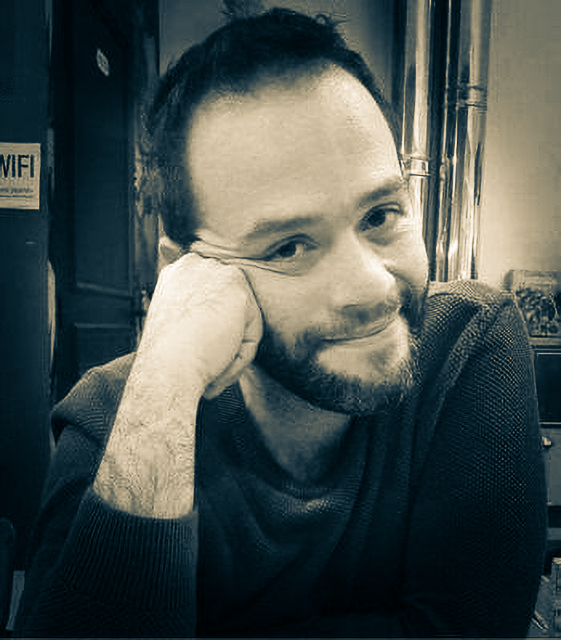
Antoine Paris is among other things a teacher in Greek in Bordeaux Université and a researcher in Biblical studies and literature theory. Due to its poor sense of organization and, above all, to personal preferences, he works almost exclusively at night. He also loves wandering in the streets beneath the lamplights or in forest on a pitch-black night.
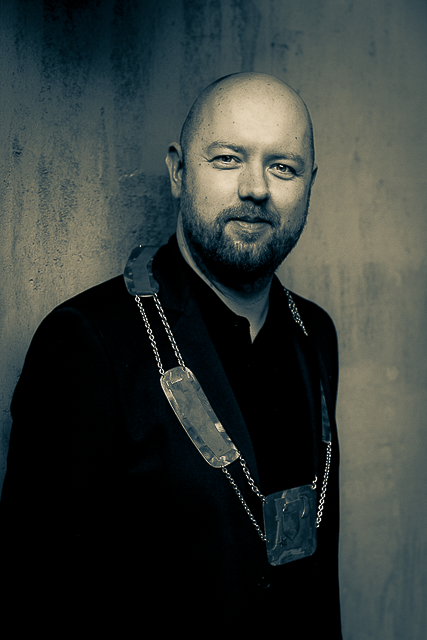
In 2018, Merlijn Poolman has been elected in the post of Night Mayor of the Dutch city of Groningen. As leader of the Groningen Night Council, member of the Dutch Popcoalitie (advisory board to the government) and former European Music Council fellow member. In 2020, @merlijnpoolman has contributed to chapter 4 on the SUSTAINING OUR NIGHTLIFE SCENES concentrated on supporting nightlife workers and other vulnerable groups, coordinated by @djaptone & @djtaranyc as part of the Global Recovery Nighttime Plan, a @vibelab_network initiative. To read & download the chapter go to: https://www.nighttime.org/recoveryplan/ His newly formed Cosimo Foundation raises funding for cultural projects and creates partnerships with the business world. We're grateful to @merlijnpoolman for supporting the #nightworkercharter. More on his achievements and work: Facebook: @merlijn.poolman | Youtube: @MerlijnPoolman | LinkedIn: @merlijn-poolman-a4659212/ merlijnpoolman.nl | cosimofoundation.nl
First updated on 01.02.2022
1. Julius-Cezar MacQuarie | Founder and campaigner of the Nightworker Charter
2. Nazek Ramadan Moussa | Migrant Voice (UK)
3. Daniel Nelson (UK)
4. Ger Duijzings | Regensburg University (DE)
5. Cansu Civelek | University of Vienna (AT)
6. Julia Szalai | Central European University (HU)
7. Valentina Sandu-Dediu | N.E.C. & National University of Music Bucharest (RO)
8. Violetta Zentai | Central European University (HU)
06.02.2022
15. Lauren J Phillips | Rice University (US)
07.02.2022
16. Alexandra Bulat | Labour Councillor, Cambridgeshire County Council (UK)
17. Magdalena Craciun | University of Bucharest (RO)
08.02.2022 (Official publication of the Charter)
18. John Clarke | Open University (UK)
19. Mariya Ivancheva | University of Strathclyde (Glasgow, UK)
20. Alexandra Tatic | Centre Norbert Elias/Ecole des hautes etudes en sciences sociales (F)
09.02.2022
21. Lucia Laurent-Neva | Visual Signo (UK)
22. Valentin - Veron Toma | Institute of Anthropology „Francisc I. Rainer” (Romanian Academy) (RO)
23. Alessio Kolioulis | UCL Bartlett Development Planning Unit (UK)
24. Daniela Ana | Independent Researcher (DE)
25. Daina Pupkeviciute (EE)
26. Arianna Simonetta | SOAS (UK)
27. Cicek Ilengiz | Max Planck Institute for the Study of Ethnic and Religious Diversity (DE)
28. Chloe Dominique | UCL (UK)
29. Daniel Malet Calvo | Iscte, University Institute of Lisbon (PT)
30. Francesco Fanoli (IT)
31. Ilse van Liempt | Utrecht university (NL)
32. Dr Robert Shaw | Newcastle University (UK)
33. Natalia Paszkiewicz (UK)
34. Mariko Hayashi | Southeast and East Asian Centre (UK)
35. Susannah Crockford | University of Exeter (UK)
36. Andreea-Raluca Leru (RO)
37. Asha L. Abeyasekera | RHUL (UK)
38. Francesco Vacchiano | University Ca' Foscari, Venice (IT)
39. Polly Faber (UK)
40. Elise Hjalmarson | The Graduate Institute, Geneva (CA)
41. Patience Mususa | The Nordic Africa Institute (S)
42. Hannah Mayr (UK)
43. Michael Fichman | University of Pennsylvania, Philadelphia City Council Arts and Culture Task Force (US)
44. Tara Duvivier (US)
45. Dominique Crozat | Paul Valéry Montpellier University (F)
46. Antoine Paris (F)
10.02.2022
47. AM Preisz | Central European University (AT)48. Ruth Prince | University of Oslo (N)
49. Carmel Sutcliffe (Australia)
50. Leni Schwendinger | International Nighttime Design Initiative (US)
51. Patrick Alexander | Oxford Brookes University (UK)
52. Prem Kumar Rajaram | Central European University (AT)
53. Mert Koçak | Central European University (TR)
54. Ana-Maria Sîrghi | New Europe College (RO)
55. Oriana Brás (PT)
56. Shirley Martin | University College Cork (IRL)
57. Claudia Kunschak | Ritsumeikan University (JP)
58. Ágnes Erőss | Geographical Institute RCAES (HU)
59. Juliette Galavielle | Université Paris 1 Panthéon Sorbonne (F)
60. William Straw | McGill University (CA)
61. Phoebe Martin (UK)
62. Nanneke Winters | Institute of Social Studies (ISS), Erasmus University Rotterdam (NL)
63. Elena Trifan | National University of Political Studies and Public Administration Bucharest (RO)
64. Zeynep Kasli | International Institute of Social Studies (NL)
65. Vinod Sartape | Central European University (RO)
11.02.2022
66. Ioana Manolache | New Europe College (RO)
67. Cristi Honceru | Tenshi (RO)
68. Victoria Myronyuk | New Europe College (RO)
69. Jessica Barber | VibeLab (DE)
70. Anca Oroveanu | New Europe College-Institute for Advanced Study (RO)
71. Rik Adriaans | University College London (UK)
72. Dr. Sipho Sithole | Johannesburg Institute for Advanced Study (ZA)
12.02.2022
73. Zrinka Bralo | Migrants Organise (UK)
74.Karin Astrid Siegmann | Institute of Social Studies (ISS), Erasmus University Rotterdam (NL)
75. Merlijn Poolman | Nachtraad Groningen (Nightlife Council) (NL)
76. Constantin Ardeleanu | New Europe College & The Lower Danube University of Galati (RO)
77. Camelia Badea (RO)
13.02.2022
78. Samuel Weeks | Thomas Jefferson University (US)
14.02.2022
79. Phil Horsley (UK)
80. Eline Van Audenaerde | The Unicorn Mothership (B)
81. Alla Garcia (ES)
15.02.2022
82. Ann Lui | Assistant Professor of Practice, University of Michigan (US)16.02.2022
83. Silke Heumann | Institute of Social Studies (ISS), Erasmus University (NL)
18.02.2022
84. Platon Issaias (UK)
85. Céline Cantat | Sciences Po Paris (F)
21.02.2022
86. Adina Marincea | New Europe College (RO)
87. Hestia I. Delibas | Centro de Estudos Sociais (CES), Universidade de Coimbra (PT)
22.02.2022
88. Sahizer Samuk | IMT Sschool for Advanced Studies (IT)
89. Maria Paula Prate | University College London (UK)
90. Ewa Koscian (UK)
91. Adomas Lapinskas | Kaunas 3022 (LT)
23.02.2022
92. Marie Martin (F)
93. Christos Christofides (CY)
24.02.2022
94. Ilaria Vecchi | Leeds Trinity University (UK)
95. John R Campbell | School of Oriental & African Studies (UK)
96. Raquel Sofia Rodrigues Rosa Machaqueiro | George Washington University (PT&US)
97. Peter Sutton Allen | Rhode Island College (US)
98. Murphy Halliburton | Queens College, City University of New York (US)
25.02.2022
99. Maria Rădan-Papasima | Antropedia (RO)
26.02.2022
100. Sabra Webber | The Ohio State University (US)
101. Amber Bunnin | University of Oxford (UK)
01.03.2022
102. Claudia Aradau | King's College London (UK)
103. Ilana Gershon | Prof Anthro Ruth N. Halls, Indiana University (US)
10.03.2022
104. Silvia Marton | University of Bucharest (RO)
105. Paraskevi Zotali | Panteion University (GR)
09.04.2022
106. Robert Mcintyre | Citizens Advice (UK)
12.05.2022
107. Anna Edwards | The University of Melbourne (AUS)
26.05.2022
108. Marion Roberts | University of Westminster (UK)
20.06.2022
109. Dr Rhetta Moran | Participatory Action Research methodologist | RAPAR (UK)
22.06.2022
110. Kath Grant | National Union of Journalists, Manchester and Salford Branch (UK)
27.06.2022
111. Eva Schwab | OSUN Postdoctoral Fellow | Democracy Institute, CEU (HU)
20.07.2022
112. Don Flynn | Permanent People’s Tribunal and Reference Group of Status Now Network (UK)
22.08.2022
113. Popescu Andrei (RO)114. Lavinia Poenaru (RO)
115. Diana Covaci | Babes-Bolyai University, Cluj-Napoca (RO)
116. Laura Radu (RO)
117. Aurora Marin (RO)
23.08.2022
118. Ioana Bas (RO)
24.08.2022
119. George Ciobanu (DE)
120. Corina Volcinschi (DE)
121. Florin Ilonca (RO)
122. Hrituleac Anca (RO)
123. Mihnea Avram (NL)
124. Andreea Craciun (RO)
25.08.2022
125. Adriana Zdrentu (RO)
126. Carmen Sylva Johansen (N)
127. Mitarcă Monica | Romanian Academy (RO)
27.08.2022
128. Liana Berzovan (RO)
05.09.2022
129. Madeleine Wrench | The Liminal Space (UK)
130. Night Club (UK)
09.09.2022
131. Tiberiu German (DE)
132. Iulia-Ioana Radu (S)
133. Dragos Tarcau (RO)
134. Anca Gauca (RO)
10.09.2022
135. Gombos Mira | Romanian Broadcasting Company (RO)
11.09.2022
136. Ionut Vasile Moraru (RO)
137. Veronica Serbanoiu (RO)
12.09.2022
137. Nazîru Mădălin (RO)
14.09.2022
138. Nancy Gonlin (US)
139. Marin Mihai Cosmin (RO)
02.11.2022
140. Sequoia Kim (CA)
141. Ruth Hally (IE)
02.12.2022
142. Tom O'Mara, University College Cork (IE)
01.02.2023
143. Caitríona Ní Laoire, University College Cork (IE)
13.02.2023
144. Suzanne Walsh, University College Cork (IE)
WHO's NEXT?
🎖 MEET THE NIGHTWORKERS YOU SUPPORT 🎖


